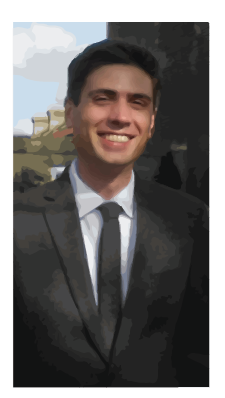 Dr. Antonio Boveia
Dr. Antonio BoveiaAssistant Professor, Physics Department
The Ohio State University
3056 Physics Research Building
191 W. Woodruff Ave
Columbus, OH 43210
@CERN: Bt 1-1-56
Email at OSU: boveia.1 or at CERN: antonio.boveia
My c.v. and publications.
Research
I and my research group study what the universe is made of and the physics of how those fundamental pieces interact with each other. Since 2009, I've been a part of the ATLAS Experiment at the CERN Large Hadron Collider (LHC) in Geneva, Switzerland. My group uses the LHC's high-energy collisions to search for new particles and forces of nature. Recently, we are most interested in how the LHC could provide a laboratory to learn about dark matter.
My research group is part of the overall OSU ATLAS group and affiliated with Ohio State's Center for Cosmology and Astro Particle Physics. We are
- Antonio Boveia (head of the group)
- Emma Tolley (postdoctoral researcher)
- Natalie Harrison (graduate student)
- Bryan Reynolds (graduate student)
- Boyu Gao (undergraduate student)
- Ari Josephson (undergraduate student)
- Sam Roberts (undergraduate student)
Research Projects
Here are some of the things we have worked on.
-
Trigger-level analysis at ATLAS, Trigger-object Level Analysis of dijet events..., as part of new triggering (real-time) analysis strategies. See also A roadmap for HEP software and computing R&D for the 2020s.


-
A review article on Dark Matter Searches at Colliders for the Annual Review of Nuclear and Particle Science.
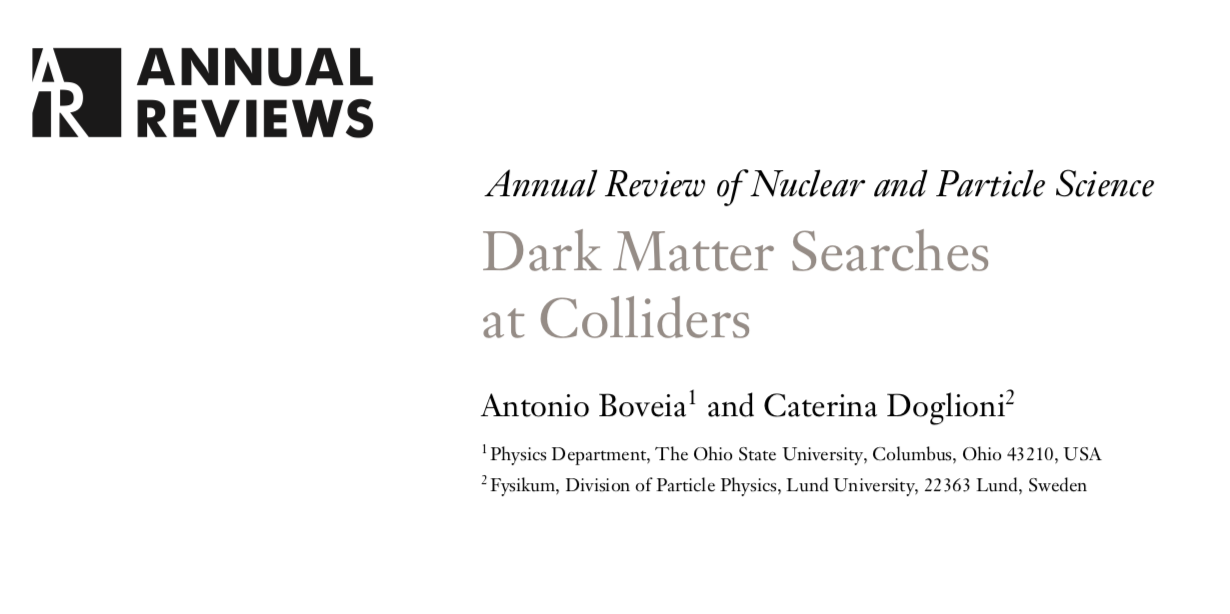
-
Tracking in the trigger for ATLAS, via the Hardware Track Trigger for the HL-LHC and the ATLAS FastTracKer (FTK) before that.

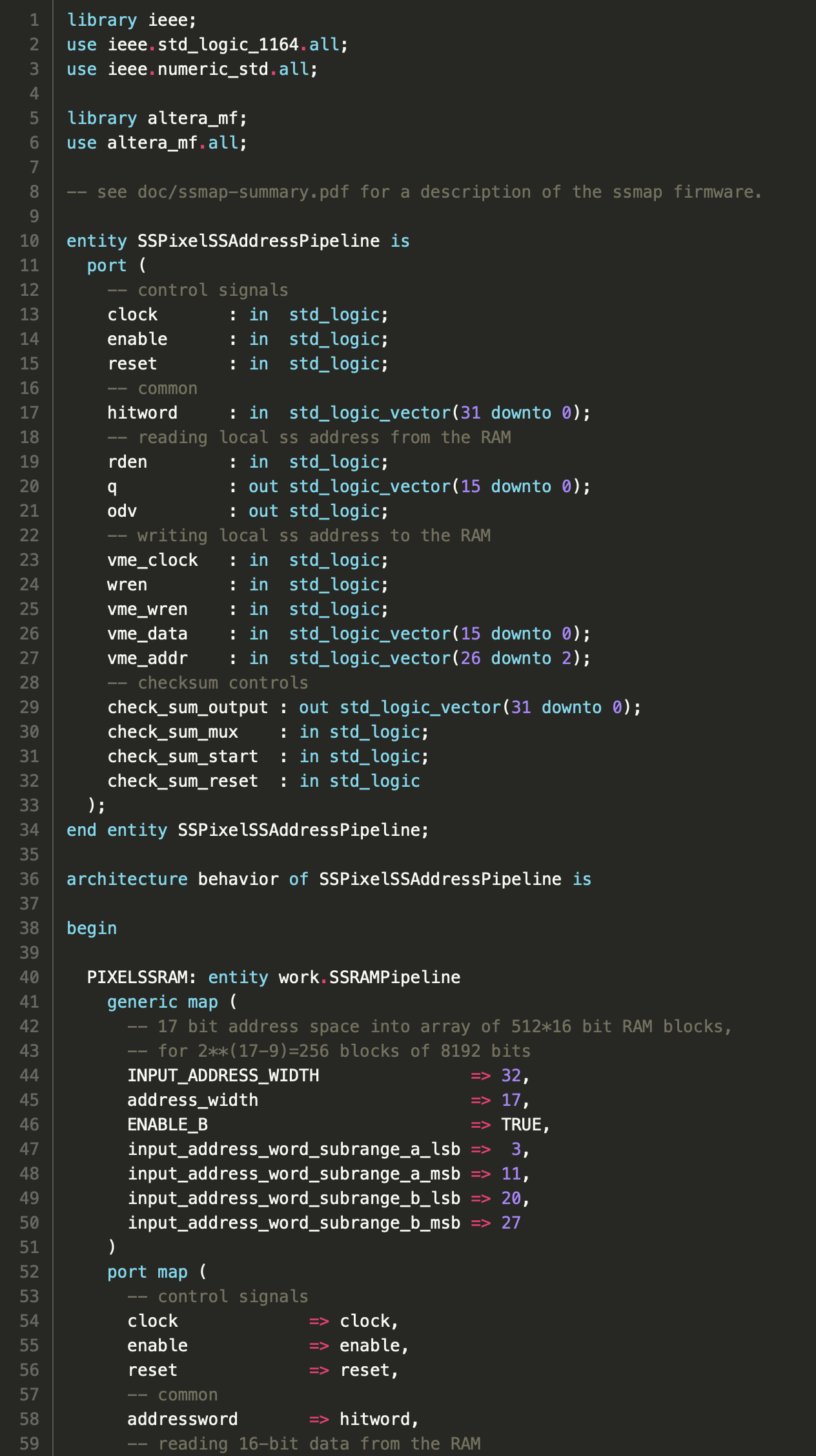
-
A picosecond timing detector for ATLAS, Technical Proposal: A High-Granularity Timing Detector for the ATLAS Phase-II Upgrade.
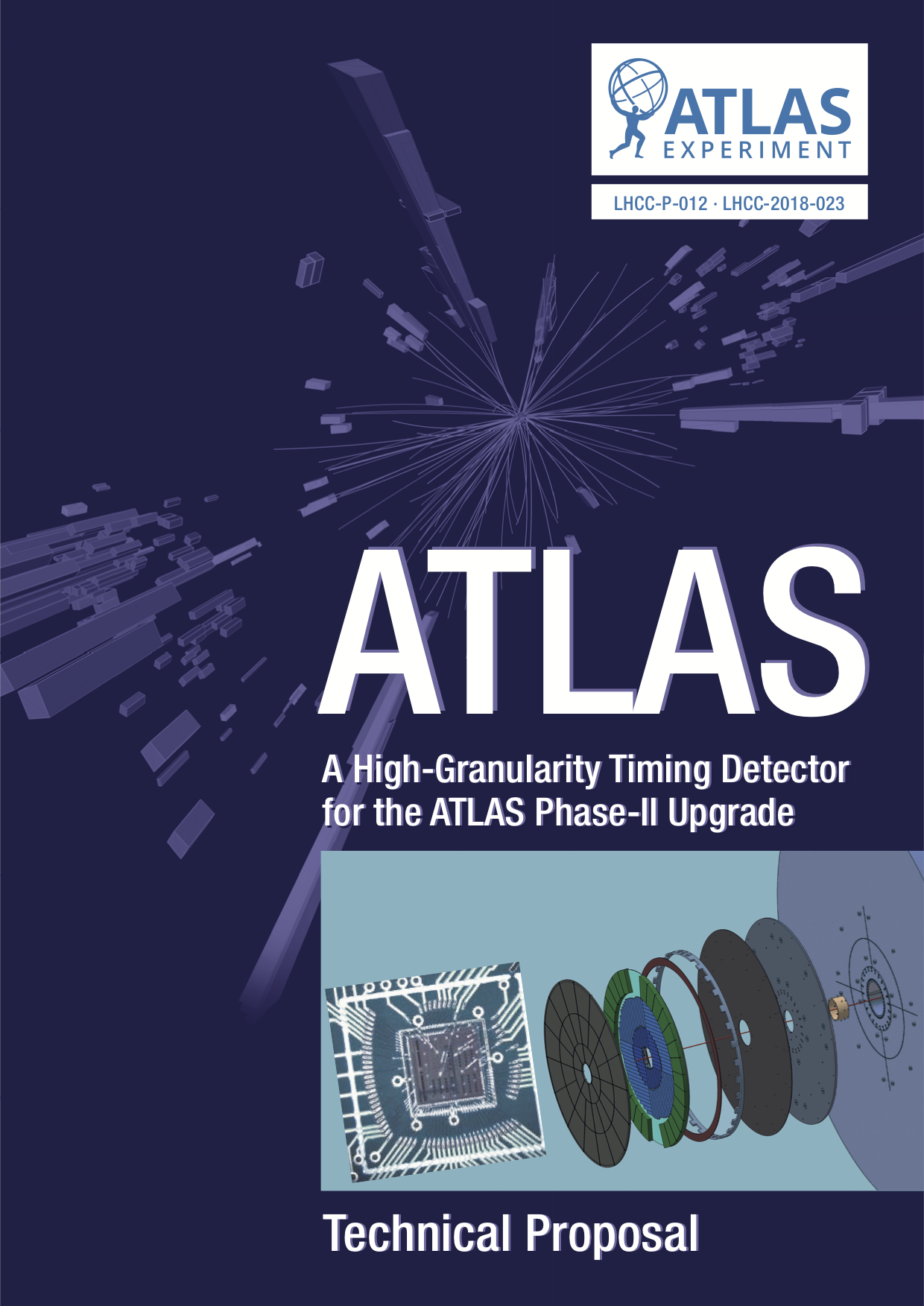
-
Low-mass dijet resonances triggered with an ISR photon, Search for low-mass resonances decaying into two jets... (and, earlier, this).

-
Cross-channel syntheses of ATLAS invisible particle searches, Constraints on mediator-based dark matter models using √ s=13 TeV pp collisions at the LHC with the ATLAS detector and the earlier Constraining dark matter using mono-X, dijet, and dilepton final states with the ATLAS Detector.

-
Mono-X searches at ATLAS, such as Search for dark matter and other new phenomena in events with an energetic jet and large missing transverse momentum using the ATLAS detector (also this).

-
LHC-wide efforts to understand how collider searches for new particles can contribute to the search for dark matter, developed as the LHC Dark Matter Working Group and the earlier ATLAS/CMS Dark Matter Forum.

-
The First search for new particles with 13 TeV collision data (see also this and this).


-
The discovery of the Higgs boson where I played a tiny part, and a talk I gave shortly after.

-
Photon + jet resonance searches with 7 TeV and 8 TeV data.

-
Studies of radiation Damage to the CDF Silicon Vertex Detector (and earlier here).
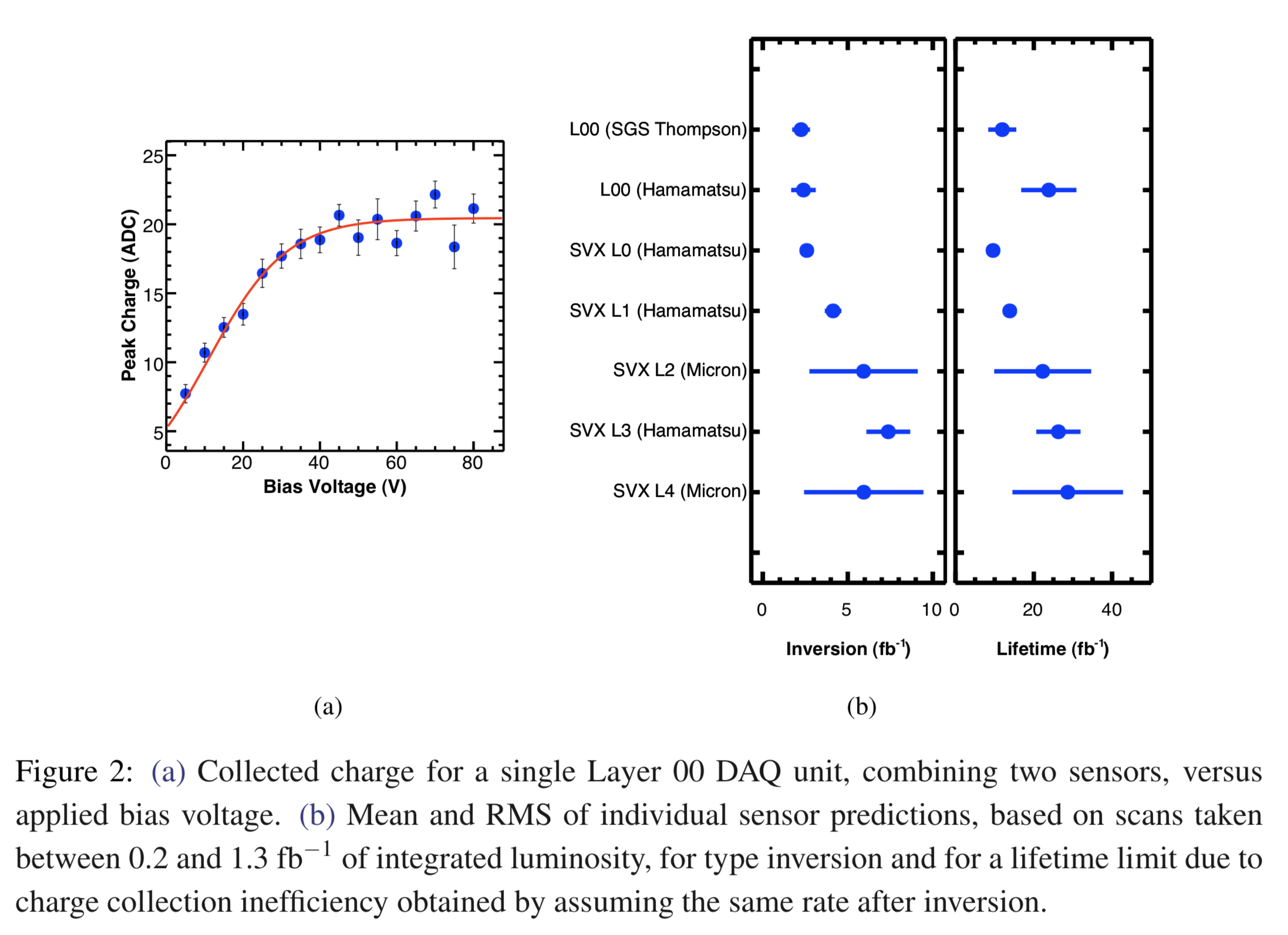
-
Track Reconstruction and Diboson Resonance Searches in 1.96 TeV p-pbar collision data at CDF.
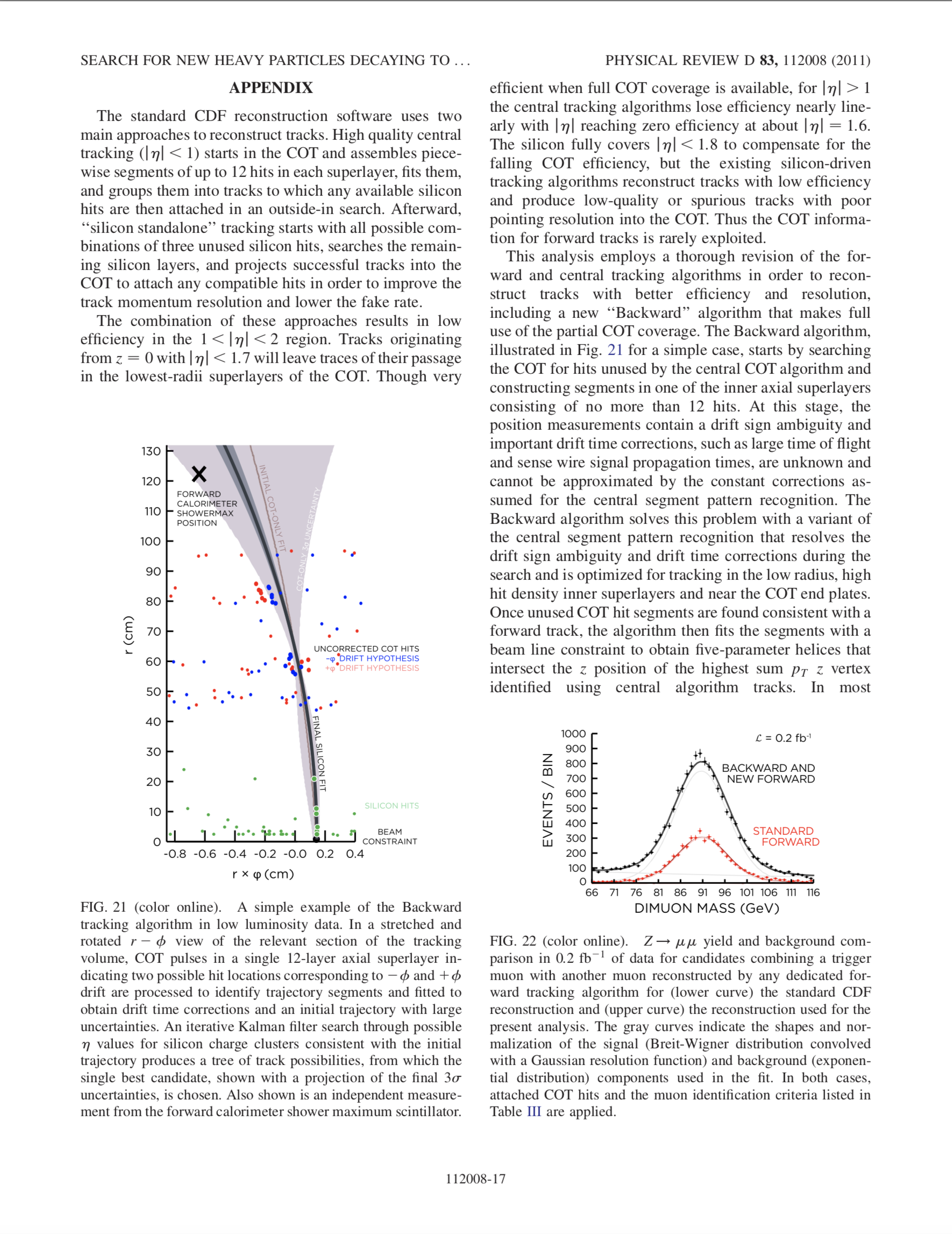
Publications
Here are some of our recent publications.- ATLAS Collaboration, Technical Proposal: A High-Granularity Timing Detector for the ATLAS Phase-II Upgrade, CERN-LHCC-2018-023. LHCC-P-012, June 2018.
- A. Boveia, et al., Recommendations on presenting LHC searches for missing transverse energy signals using simplified s-channel models of dark matter, CERN-LPCC-2016-001, March 2016.
- A. Albert, et al., Recommendations of the LHC Dark Matter Working Group: Comparing LHC searches for heavy mediators of dark matter production in visible and invisible decay channels, CERN-LPCC-2017-01, March 2017
- T. Abe, et al., LHC Dark Matter Working Group: Next-generation spin-0 dark matter models, CERN-LPCC-2018-02, October 2018.
- ATLAS Collaboration, Constraints on mediator-based dark matter and scalar dark energy models using &sqrt;s=13 TeV 𝑝𝑝 collision data collected by the ATLAS detector, arXiv:1903.01400, March 2019. ATLAS Collaboration, Search for low-mass resonances decaying into two jets and produced in association with a photon using pp collisions at &sqrt;s=13 TeV with the ATLAS detector, arXiv:1901.10917 (submitted to Phys. Lett.), Jan. 2019.
- A. Boveia and C. Doglioni, Dark Matter Searches at Colliders, Ann. Rev. Nucl. Part. Sci. 68 429--459, October 2018.
Talks
Here are some of our recent talks.
- (In-)Direct Searches Complementarity + Interpretation (convener summary), DM@LHC 2018, Heidelberg, Germany, 6 April 2018.
- The LHC Dark Matter Working Group, TeV Particle Astrophysics 2017, Columbus, OH, 8 August 2017.
- Where is Dark Matter at the LHC?, Karlsruhe Institute of Technology, Karlsruhe, Germany, 22 June 2017.
- Where is Dark Matter at the LHC?, Johns Hopkins University, Baltimore, Maryland, 12 April 2017.
- Dark Matter at the LHC, APS Coordination Panel for Advanced Detector R&D, Caltech, 8–10 October 2016
- Dark Matter Searches at the LHC, Dark Interactions 2016, Brookhaven National Lab, 4–7 October 2016
- Searches for Dark Matter at ATLAS and CMS, SUSY 2016, Melbourne, Australia, 3-8 July 2016
- Searches for Dark Matter at ATLAS, CERN LHC Seminar, CERN, 26 April 2016
- Searches for Dark Matter at ATLAS, Joint Experimental/Theoretical Physics Seminar, Fermilab, 6 November 2015
Teaching